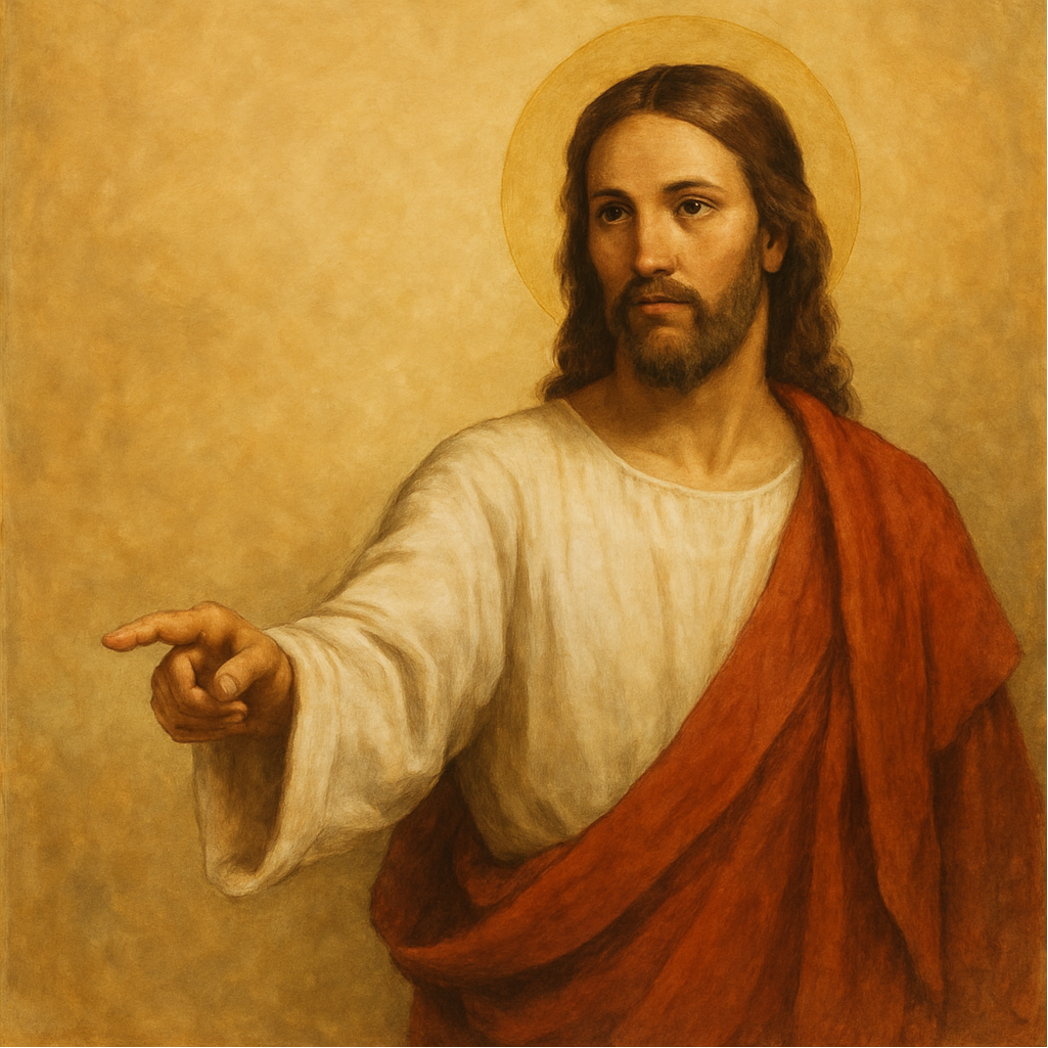
Gospel according to Saint John 20:19-23:
On the evening of that first day of the week, when the doors were locked, where the disciples were, for fear of the Jews, Jesus came and stood in their midst and said to them, “Peace be with you.” When he had said this, he showed them his hands and his side. The disciples rejoiced when they saw the Lord. Jesus said to them again, “Peace be with you. As the Father has sent me, so I send you.” And when he had said this, he breathed on them and said to them, “Receive the holy Spirit. Whose sins you forgive are forgiven them, and whose sins you retain are retained.”
The Spirit Who Restores Our Identity
Luis CASASUS President of the Idente Missionaries
Rome, June 08, 2025 | Pentecost Sunday
Acts 2: 1-11; Rom 8: 8-17; Jn 14: 15-16.23b-26
I remember with deep affection the audience Pope Francis granted us on the Monday after Pentecost in 2016. We gently asked him if he had read the book by our Founder, In the Heart of the Father, which we had given him shortly before. His response was, Did you hear my homily yesterday? Indeed, we had heard it, and it began like this:
The mission of Jesus, culminating in the gift of the Holy Spirit, had this essential purpose: to restore our relationship with the Father, destroyed by sin; to take us away from our condition as orphans and restore us to that of children.
This should be something to meditate on during today’s solemnity. An essential form of the Holy Spirit’s activity is Purification. In this we can know him as a person, because he certainly manifests a very determined personality in seeking our purification. Although one of the most commonly used images is fire, surely to represent the purification that flames can perform on many materials, as was traditionally done with gold. In Matthew 3:11, St. John the Baptist says that Jesus will baptize with the Holy Spirit and fire, indicating that inner transformation that disposes us and makes us increasingly sensitive to living as children. This is the beautiful way in which our Father Founder describes the path of the ascetic.
What is our experience of purification? Even if we are not very attentive or sufficiently reflective, we feel how the Holy Spirit purifies us of something more than sin. We can say, in simple terms, that the Holy Spirit frees us from everything that has NO relationship with God and therefore comes from the world or from our ego.
One of the clearest examples is that of the rich young man (Mk 10:17-21), whom Jesus “looked upon with affection” because of his goodness and good intentions, but who refused to leave his house, sisters, brothers, and possessions, even though Christ asked him to do so personally and explicitly. The result? This young man disappears from the Gospel; we do not know if he ever participated in the tasks of the kingdom again, although he surely continued to be an honest and hardworking person.
This is necessary to enter, literally, into the kingdom of heaven, that is, to participate in the fulfillment of God’s will, as witnesses and as apostles. This is precisely what we remember today on the solemnity of Pentecost.
But this is a constant feature. For example, in Chapter 6 of Isaiah, when he feels called by the Lord, he laments thus: Woe is me, I am lost! I am a man of unclean lips, and I dwell among a people of unclean lips, and my eyes have seen the King, the Lord of the universe. And he had the impression that his lips were burned with fire by an angel, so that he could offer himself “to be sent.”
Today, the Gospel recounts how the Holy Spirit purified the fear of the first disciples. As a result, they received the power to free others from sin and were sent out by the Master himself. A little fable will help us remember this reality:
Once upon a time, there was a clay pot forgotten in the corner of a workshop. It was dirty, cracked, and covered with dust. One day, for some reason he couldn’t explain, the potter noticed the pot, picked it up, and said, I can still make something beautiful out of it.
He took it to the water and began to wash it carefully.
But it wasn’t enough. The pot had deep stains, hardened by time. So, the potter placed it near the fire. The heat began to work its magic. It wasn’t comfortable: the clay crackled, and some impurities rose to the surface. But when the process was over, the pot had a new shape, a new shine, and was useful again.
The potter smiled: Now it’s ready to hold clean water.
The message is the same as we read in the Old Testament, that is, we are purified to serve, to live fully, which is the true meaning of salvation, not simply to avoid punishment but to be rescued from the powers of this world.
Moreover, the Lord your God will circumcise your heart and the heart of your descendants, so that you may love the Lord your God with all your heart and with all your soul, in order that you may live(Deut 30:6).
The purification to which the Holy Spirit subjects us can be painful. But it is important to distinguish two aspects:
- The pain and suffering that we so often experience does NOT come from God. However, He uses that suffering precisely for purification, which produces… another kind of pain, which has been characterized as loneliness, dark night, absence… but always awakening in the disciple a search for God that is no longer only rational, no longer only emotional, but a true thirst, in the sense that we cannot feel fulfilled or at peace unless we continue to draw closer to Him. We all remember St. Augustine’s famous phrase: “You have made us for yourself, Lord, and our hearts are restless until they rest in you.” Certainly, following Christ is difficult, but not having the opportunity to walk with Him is absolutely distressing.
- The separation that purification brings about is absolutely necessary, for only in this way can we attain a sensitivity that enables us to draw closer to God in ways that were previously unimaginable to us. Certainly, the Holy Spirit calls us through unexpected situations: illness, crisis, chance encounters, or even failure.
Claudia Koll was a very popular Italian actress in the 1990s, known for roles in films with highly erotic content. She became a sex symbol in Italy, completely removed from the Christian faith.
At the height of her professional success, she participated in a meditation session in which she sought serenity and relaxation in the New Age style, without any Christian roots. During that experience, she felt a negative and oppressive presence, as if something dark was enveloping her. Frightened, she cried out inside, Jesus, save me!
And it was at that moment, according to her, that the darkness completely dissipated. That moment marked a turning point in her life. She began to approach the Gospel, read the writings of the saints, and finally returned fully to the Catholic faith. Claudia left commercial cinema and has since devoted herself to the apostolate and the service of the poor. She gives lectures on her conversion and leads a community dedicated to evangelization.
—ooOoo—
Purification does not always have to happen in a spectacular or intense way; rather, it is usually a long process, perhaps extending in various ways throughout our lives.
Without using theological terms, let us remember how to obtain fruit from what Providence wishes to transform into purification:
* Pay attention to interruptions. A loss, a crisis, or an unwanted turn of events can become a sign of the path that the Spirit is showing us at that moment.
* Listen to my inner restlessness. That spiritual restlessness -even if I can’t always name it- may be the Holy Spirit whispering that I am made for something more. It’s not just a matter of hastily seeking “peace of mind,” but of opening myself to a more authentic life.
* Look back with new eyes. When I look back on my life with sincerity, I can see moments when something “accidental” turned out to be key to my growth or conversion. Above all, certain people.
* Seek the Word in the midst of life. The Gospel is not just a venerable ancient book: it is light for interpreting the present. Sometimes a passage, read or heard “by chance,” illuminates my current situation in a surprising way, at just the right moment. I must not forget that the Bible is a collection of inspired books. I will be able to benefit from the inspiration that the authors of the Word received if I live in a growing state of Intellectual Acceptance (welcoming, attentive) of the Gospel.
* Remain open and prayerful. Openness of soul is recognized today as the primary factor for a balanced personality capable of good relationships with others. The same is true for our pilgrimage toward God.
The prodigal son found it difficult to approach his father’s house. Christ clearly explains that this young man suffered shame and humiliation within himself, fear of rejection, and a real internal struggle with his identity: I am no longer worthy to be called your son.
The “rethinking” described in the parable shows a moment of inner awakening, but it also implies great personal humiliation. Recognizing that you have failed deeply and that you need to return… is not easy for any human being. It requires courage and humility.
The most important thing: although it was difficult for him, he returned, he was able to open himself to the challenge of profound change. And that transformed everything.
What seemed like a path of shame ended up being a celebration of reconciliation.
The First Reading offers us an image of how the Holy Spirit is the only being capable of achieving unity among us, a unity that seems incomprehensible to the eyes of the world, as it did to those who listened to the disciples: We each hear them speaking in our own language about the great things God has done for us.
This is what happens when, without the need for special activities or profound lessons, we simply welcome into our homes friends and acquaintances who feel the unity among us, the essential condition by which they will know that we are disciples of Jesus (Jn 13:35).
_______________________________
In the Sacred Hearts of Jesus, Mary and Joseph,
Luis CASASUS
President












